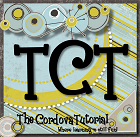Criminal Justice
This 30 week 1 ½ hour class will answer our questions like What happens when someone is arrested? Under what conditions can the police search a house? What do police officers do all day? Does TV accurately depict what going to court is like? This course explains the workings of the police, courts and correctional systems while equipping your student with a solid understanding of the intricate workings of the processes of criminal justice.
My love and fascination for Forensic Science has inspired an interest in the criminal justice system and all the components and careers involved. I have had the pleasure of teaching students who have gone into law enforcement and investigative work on various levels within the state and federal system and this makes me want to learn more! Students who love Forensics will enjoy this class and vice versa. Students interested in law enforcement and the law in general will learn all aspects of criminal justice to support them in future endeavors.
In class, we will use textbooks, PowerPoints, media, discussion, projects, cooperative learning, and research to teach Criminal Justice in a way that engages students. We will use investigative research for criminal cases that showcase different aspects of the criminal justice system.
The course is structured with 4 main units that focus on our Introduction to Criminal Justice, Policing, Criminal Courts, and Corrections.
Introduction to Criminal Justice includes statistics, crime control model vs due process model, goals of the criminal justice system… just to name a few. Activities will center around a mock crime scene.
The Policing Unit includes making a lawful arrest, search and seizure, suspects rights, chain of command, and many more. Activities include creating a police unit and organizing its operations.
The Court Unit includes plea bargains, opening statements, objections, and a ton more. Activities involve setting up and holding a mock trial.
The Corrections Unit examines our corrections system on local, state and federal levels and includes topics like probation and parole, incarceration, and prison riots. Activities involve creating plans for a prison and its operation.
There is great flexibility to tailor to the needs and pace of the students in the class and pursue their interests.
Supplies: All curricula will be provided via PowerPoints, handouts and media. Students will need a 3-ring binder with 4 dividers preferably with pockets and notebook paper. Students need access to a computer at home for research as well as Schoology for assignments.
Homework: Students should expect homework most weeks and 30-45 minutes several days a week on average. There may be more homework on the weeks that research and projects are assigned.
Wednesday
Time: 2:35-4:05
Grades: 9-12
Cost: $395
Supply Fee: $60
Tutor: Andrea Reese
